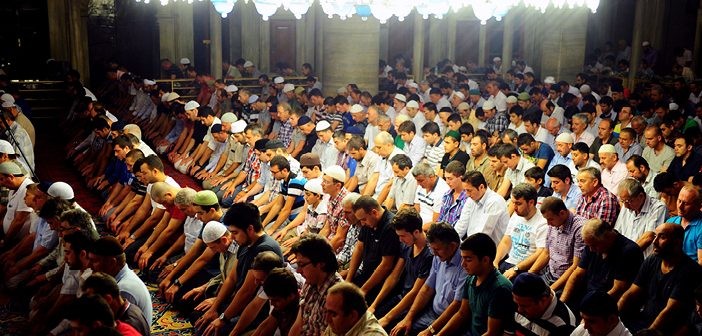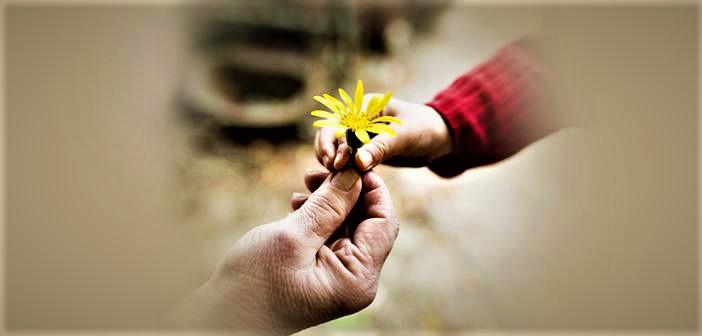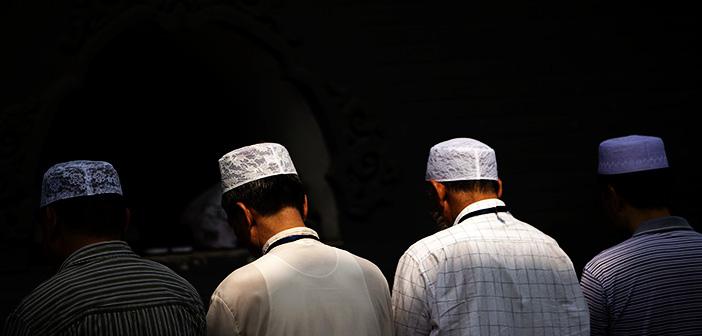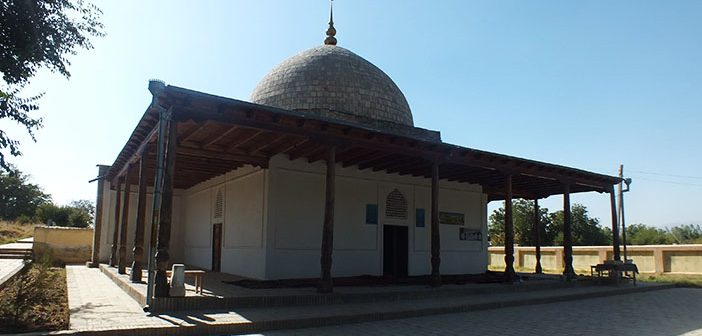
Who is Abdul Khaliq Ghujdawani?
Who is Abdul Khaliq Ghujdawani? What kind of person is Abdul Khaliq Ghujdawani?
Abdul Khaliq Ghujdawani [d. 1179 - 1220]
Abdul Khaliq Ghujdawani (may Allah have mercy on him) was born in the town of Ghujduwan, approximately 40 km away from Bukhara. His father was Abdul Jamil Efendi, a great scholar of the inner and outer sciences from Malatya and from the lineage of Imam Malik.
According to narrations, Abdul Jamil Efendi helped the Sultan of Malatya to return to his throne after being removed from power by the enemy. He was rewarded for this act by being offered the Sultan’s daughter in marriage.
Khidr gave good news to Abdul Jamil Efendi that he would have a son through this marriage and he told him to name him Abdul Khaliq[1]. A short time later Abdul Jamil Efendi gathered together his family and migrated to the town of Ghujduwan in Bukhara. Abdul Khaliq Ghujdawani was born here[2].
Abdul Khaliq went to Bukhara at a young age to study and whilst he was reading a commentary with the great scholar of the town, Imam Sadraddin, he came across the verse:
‘Call on your Lord humbly and secretly. He does not love those who overstep the limits’ (A’raf, 7:55).
He asked his teacher what was meant by ‘secretly. When making dhikr openly other people knew, and when done in secret, Satan was aware of this. It is known from the hadith that Satan passes through man like blood flows in the veins[3]. In that case how was one to perform dhikr in secret?
His teacher, Sadraddin Efendi gave the following reply:
“My son, this is a matter of ledunn knowledge. If Allah so wills He will send you a man from His friends who will teach you this matter”[4].
Guidance From Khidr
According to narrations, one day while Ghujdawani was sitting in the garden, Khidr came and told him to dive into the pool and whilst under the water to make the following dhikr:
“لَا إِلٰهَ إِلَّا اللّٰهُ مُحَمَّدٌ رَسُولُ اللّٰهِ”[5] (La ilaha illallah, Muhammadun Rasulullah).
In this way Khidr taught him the method of performing khafi dhikr (hidden remembrance of Allah). He also taught him to observe the number, thereby teaching him the principle of wuquf adadi (Awareness of Numbers)[6].
Another day Khidr came to Abdul Khaliq Ghujdawani who brought two loaves of barley bread from his home. Khidr did not eat and Ghujdawani said:
“Eat, the food is lawful”. Khidr then said:
“Yes it is lawful however the one who kneaded the dough did so without having ablution. It is not suitable for us to eat from this”[7].
In this way Ghujdawani was spiritually trained by Khidr and later devoted himself to Yusuf Hamdani, again under the instruction of Khidr[8]. He said about this matter:
“I was 22 years old. Khidr, the teacher of hearts that are awake and alive, charged me to the great master, Yusuf Hamdani and told him to train me. Whenever Yusuf Hamdani came to Maveraunnehir, I would rush to his service, trying to benefit from him and being revived by his prosperity”[9].
His Virtues
His countenance was ever smiling as Ghujdawani was a true friend of Allah, with his majesty, discernment and foresight. He dispensed prosperity and spirituality wherever he went.
While he was in Bukhara he continued to attend the talks of Hamdani. When he left, he returned to his home town of Ghujduwan and began to lead a solitary life of abstention and struggle. However he continued to carefully hide his great spiritual state.
Abdurrahman Jami (may Allah have mercy on him) says:
“The style of Ghujdawani was a model that all of the Sufi orders respected. He continued in his devotion to trustworthiness, spiritual purity, and the Qur’an and the Sunnah; he fled from innovation (bid’a) and struggled to act against his own desires and whims and always kept secret from others the state and rank that he reached”[10].
Just as Ghujdawani was extremely humble himself, so too did he sternly caution his own spiritual children from pride, arrogance and conceit.
One day one of his visitors said:
“Master, pray for us so that we can preserve our faith. In this way, Allah willing we can save our lives from the traps of Satan and find salvation”.
Ghujdawani gave the following reply:
“The solution to that is as follows: If a person complies with the obligatory acts, his prayers will be answered and accepted. First perform righteous deeds and then mention us in your prayers, after your obligatory acts. We too will mention you in our prayers. We then hope that Almighty Allah will accept our prayers”[11].
Khwaja Abdul Khaliq Ghujdawani, who is also known by the title, ‘The head of the chain of Kwaja, is considered to be the saint who established the tariqah of the Khwajagan and who set forth the principles of the Naqshi tariq, the foremost of which is khafi dhikr (dhikr done in secret).
Naqshibandiyya, which was known by the titles of ‘Bistamiyya’ or ‘Tayfurriyya’, in reference to Bayazid al-Bistami, up until that time, was then known by the name ‘Tariq al-Khwajagan’, from the time of Ghujdawani until Muhammad Bahauddin”[12].
The leading scholars and rulers of Bukhara became his students.
His Manners as a Servant
One of the dervishes once came to Ghujdawani and said:
“If Allah Most High were to leave me free to choose between Heaven and Hell, I would choose hell, because for my entire life I resisted the desires of my nafs. So if I prefer Heaven, then this will be a desire of my nafs...”
Ghujdawani responded to this dervish, who spoke from on high about Paradise without even being sure of whether he would be offered it:
“What does the servant have to do with personal choice? We go wherever and, we will be wherever, Almighty Allah wills. This is resisting the nafs and serving Allah, that is, this is submission to Allah and living in contentment with His acts; it is not as you say”.
This time the dervish asked:
“Can Satan harm those who are on the path of the Sufis?”
Ghujdawani replied:
“Yes, when a traveller, who has not yet reached the last phase of annihilating one’s nafs, gets angry, Satan can plague him. The one who has annihilated his nafs will not get angry. In place of anger, there is in him ‘ghayrah’, that is a sensitivity towards the commands of Allah. Satan flees the place where there is ‘ghayrah’...[13].
In the Holy Qur’an it says:
“Satan said: He said, ‘My Lord, because You misled me, I will make things on the earth seem good to them and I will mislead them all, every one of them, except Your slaves among them who are sincere’ (Hijr, 15:39-40)
Thus, only the righteous believers, who Allah has preserved in their sincerity, can be saved from the evil of Satan. One must constantly seek refuge with Him in all sincerity in order to attain this state.
The İmportance of Suhbah
One time one of the students of Ghujdawani remained absent from his talks for a period of time. Every night in his dream this disciple saw a group of people come to him and say:
“You have reached perfection let us take you to Paradise”.
They then mounted him on a camel and took him to a beautiful place filled with decorative thrones, precious furniture, delicious food and running water. When it was morning he would find himself in his bed once more.
One day Ghujdawani realised, with the light of discernment, that state of this student and he asked him about his dreams. When the follower told him what happened, Ghujdawani advised him as follows:
“If you go there again repeat three times: “لَا حَوْلَ وَلَا قُوَّةَ إِلَّا بِاللّٰهِ الْعَلِيِّ الْعَظِيمِ” (‘There is no power nor strength but from Allah’, then open your eyes”.
That night in his dream the student followed the advice of his master. When he opened his eyes, he found himself amongst the bones of dead animals and realised that this was a satanic dream. He never again missed a suhbah of his teacher[14].
Sacred words (Kalimat-i Qudsiyya)
The eight principles put forth by Ghujdawani are considered to be the fundamental rules of the sayr i suluq of the Naqshiband order. These rules, which have been termed the ‘Sacred Words’, are as follows:
1- Hosh dar dam (Awareness while breathing): With every breath one should be in a state of dhikr and spiritually, awake and wary of heedlessness.
Shah Naqshiband (may Allah have mercy on him) has said:
“This path has been established upon the breath. This is why one must protect their breath while inhaling and exhaling. In fact, one should even protect the period between two breaths”[15].
2- Nazar bar qadam (Watching one’s step): When walking, one should look at the tips of one’s feet in order to avoid seeing anything that will lead to heedlessness. What veils the heart the most are those unnecessary and negative images that are reflected on to it by the eyes.
In addition, looking at one’s feet whilst walking protects the eyes from looking at the forbidden and has the virtues of good manners, modesty, humility and devotion to the Sunnah.
3- Safar dar watan (Journeying in one’s homeland): To move towards The Real with every step and move away from carnal desires. It is to start the inner journey of developing one’s spirituality, which will allow one to reach its peak.
In its outer form it is to travel to visit a Perfected Guide and to enter under his training.
4- Khalwat dar anjuman (Solitude in a crowd): Outwardly, it is to be with the people while inwardly one’s heart is with Allah.
King Hussain once asked Shah Naqshiband (may Allah have mercy on him):
“What is khalwat dar anjuman?”
Naqshiband replied:
“This is to be outwardly familiar with the people while inwardly one is constantly pre-occupied with Allah; familiarity with the people is possible for those who do not neglect their dhikr and contemplation of Allah”.
The King asked again:
“Is such a thing possible?”
Naqshiband recited the following verse in reply:
“...there are men who proclaim His glory morning and evening, not distracted by trade or commerce from the remembrance of Allah and the establishment of salat and the payment of zakat…’ (Nur, 24:37)[16].
5- Yad kard (Remembrance): With the dhikr of the tongue the heart is also brought to a state of remembrance by doing ‘nafy u dhikr’. This is the struggle and effort to delve into the reality of the kalima i tawheed. By saying ‘La ilaha’ it is to banish from the heart all desires and whims that leave the servant heedless of his Lord and to remove and erase all aims other than Allah from the heart. Then it is to establish the reality of ‘Illallah’ in this cleansed heart, and struggle to turn the heart to Allah only.
6- Baz gasht (Restraint): After dhikr of ‘La Ilaha Illallah’ it is to say the following sentence:
“O Allah! You are my aim and my purpose is to gain Your pleasure”.
7- Nigah dasht (Watchfulness): To protect the heart from unnecessary thoughts and to preserve the meaning of nafy u isbat[17] in the heart.
8- Yad dasht (Recollection): To continue the spiritual wakefulness established by dhikr and to constantly be aware of being in the presence of Allah.
In addition to these eight rules, there are three more principles that have been known from old:
1- Wuquf zamani (awareness of time): To be in control of one’s time, to use it well and to struggle to spend each moment in a state of spiritual awareness by frequently taking account of one’s nafs.
Shah Naqshiband (may Allah have mercy on him) said:
“Wuquf zamani is when the traveller is always in control of his state. If his deeds necessitate that he be grateful, then he is grateful, if he needs to repent, then he repents. That is, he should be grateful for the times of ease and expansion (bast), and be repenting and seeking forgiveness for the times of constriction (kabd)”[18].
2- Wuquf adadi (Awareness of numbers): This is to observe number when performing dhikr. In khafi dhikr, the counting of the number of nafy u isbat, it is important to ensure that the number is an odd number. This meticulousness protects the heart from disarray. There are many more mysteries and instances of wisdom in abiding by the number declared in dhikr, however, only those who have been given wisdom can perceive these via their heart. The number in dhikr is like the teeth on a key. Just as if the number of teeth is either too great or too little, the key will not open the lock, so too if one does not observe one’s number whilst performing dhikr, then the effect will be lessened.
The Messenger of Allah (peace and blessings be upon him) himself advised us to count out dhikr.
3- Wuquf qalbi (Controlling one’s heart): This is to turn to the heart or for the heart to turn to Allah whilst performing dhikr. This is an indication that the feeling of ihsan has come to a constant state of consciousness. The traveller must be in control of his heart at every opportunity and look at what state it is in since the true aim in dhikr is that the heart knows what it is making dhikr of. Dhikr is not merely words uttered by the mouth that do not impact on the heart. This is why during dhikr one should concentrate all of one’s attention on what is being remembered. The Holy Qur’an states:
‘Remember the Name of your Lord, and devote yourself to Him completely’ (Muzzammil, 73:8)[19].
His Death
For most of his life, Abdul Khaliq (may Allah have mercy on him) lived in the town of Ghujduwan and it was there that he passed away. Various dates have been put forth for his death, ranging from 1179 to 1220.
His successor, Arif Riwgari (may Allah have mercy on him) narrates:
“I was once witness to an event in which my master Ghujdawani said in the last part of his life:
“O my friends! Work hard. Embrace this path. May Allah not leave you deprived upon this path.
One hour later we heard a voice from the unseen:
‘O self at rest and at peace, return to your Lord, well-pleasing and well-pleased!Enter among My slaves! Enter My Garden’ (Fajr, 89:27-30)
Then our master gave up his spirit. Even when we were preparing for his funeral prayer, his lips were still moving saying: “Allah, Allah”. Everyone was in a state of shock. We kept asking each other: “What is the wisdom in this?”[20].
A hadith of the prophet Muhammad (peace and blessings be upon him) states:
“However you lived that is how you will die and however you die, that is how you will be raised up again” (Munawi, Fayz al-Qadir, V, 663).
Whilst still alive, Abdul Khaliq Ghujdawani (may Allah have mercy on him) warned his students about making a tomb over his grave. This is why for a long time, there was no tomb over his grave[21]. Today his tomb is a simple and modest structure, made up of a rectangular piece of marble.
His Wise Words
- One time Abdul Khaliq Ghujdawani replied to a question about khushu (reverence) in prayer as follows:
“A person who performs their salat (perfectly) is enveloped in such awe and reverence that if someone casts an arrow at him he will not say anything”[22].
- “It is necessary to abide by the religious commands and prohibitions always, placing one’s feet on the prayer mat of the sharia and istiqama, to act with taqwa and by the Sunnah, and to flee from ruhsah (using one’s licence) and innovations. One should take the prophet’s words as one’s guide, and learn his hadith and the words of the Companions”[23].
The ruhsah that is indicated here are not the sharia rulings that Allah has placed in order to make things easy for His servants, such as wiping over the boots (mash), or shortening the prayer whilst travelling. The prophet Muhammad (peace and blessings be upon him) said:
“Just as Allah, Most High, is not pleased when people do those things that He has forbidden, so too He is pleased when His servants use the licence that He has given” (Ahmad, II, 108).
Some examples of the unwanted ruhsah that are indicated here are becoming overwhelmed with lawful pleasures, to go to extremes in laughing and comedy, to slip into heedlessness and for one’s stomach to be always full[24].
- “Flee from keeping company with heedless people as you would flee from a lion”.
- “Know that the beginning of the path is tawbah. The meaning of tawbah is to shun all words and acts that are displeasing to Allah”[25].
- “One of the most necessary acts of courtesy on this path is to be in a constant state of ablution. Another one is to perform two rakats of shukur-i wudu (ablution of gratefulness) provided it is not a time of karahah”[26].
His Last Testament to His Students
- My dear child! I advise you this, that you take taqwa as your mark. Hold on tightly to your acts of worship and your other duties. Watch over your states. Always be in a state of fear of making a mistake.
- Carry out your responsibilities towards the prophet Muhammad (peace and blessings be upon him) by obeying the rulings of Allah. Abide by the rights of your mother and father and your teacher so that Allah, Most High, can protect you.
- Never abandon your recitation of the Holy Qur’an. Bring order to your inner and outer in accordance with the Qur’an. Recite the Qur’an with contemplation and take your lesson from it, with teary eyes, either in secret or in the open. Measure your every state against the Qur’an and make it accordingly.
- Never remain distant from study. Learn the sciences of fiqh and hadith. Stay away from ignorant Sufis who are thieves on the path of religion and who waylay the paths of the Muslims.
- Tightly embrace the Sunnah of the prophet and take the way of the imam’s of the righteous predecessors.
- Do not keep company with worldly youth, the people of innovation or arrogant wealthy men! They will steal your religion from you.
- Be content with two loaves of bread from the world and eat from what is lawful, for this is the key to all good. Stay away from the forbidden otherwise you will find yourself distant from Allah.
- Flee those people who follow their carnal desires, and keep company with the poor and needy. Protect yourself from the deceiving embellishments of the world, so that the fire will not burn you. Carry your own load.
- Eat and dress from what is lawful so that you can taste the pleasure of your worship.
- Always fear the wrath of Allah and never forget that you will be made to stand in the place of judgement.
- Worship often day and night and never abandon the congregational prayer. However do not be the imam or mueddhin if there is a possibility of you becoming proud or conceited.
- Do not appear in the courts unless it is absolutely necessary. Do not keep company with arrogant sultans. Do not leave the advice of the friends of Allah.
- Intensely flee from fame. Let not your religiousness be the talk on every one’s lips.
- Try to please the friends of Allah, taking great care in this matter.
- Do not become proud if someone praises you, nor saddened if someone criticises you. Let the people’s praise and criticism be equal in your sight. (Take great care in ensuring that Allah is pleased with you). Always treat people with good character
- Be courteous and well-mannered. Have mercy on all people, be they young or old. Do not laugh too much; for too much laughter is from heedlessness and it will deaden the heart.
The prophet Muhammad (peace and blessings be upon him) said:
“If you knew what I know, you would laugh little and weep much” (Bukhari, Tafsir, 5/12).
- Do not consider yourself immune from the punishment of Allah but never lose hope of His mercy. Live in a state of balance between fear and hope as this is the sign of the perfect believers.
- My dear child! A master is like a father to his disciple. In fact, he is even more merciful to him than his father. This is because he brings him to a station of closeness to Allah. The warnings and rebukes of your master are due to his compassion for you.
- Be in a constant struggle against your nafs. Live your every moment with a fear of the hereafter and remember death often.
- Remove love of leadership from your heart. It is not correct to call someone who is infatuated with leadership a master of tasawwuf.
- Fast much, for fasting protects a person.
- Do not allow your heart to become enchanted with love for this world, and always vie for the hereafter. Be religious and loyal. Be a faqih, a scholar, a person of taqwa and persistence.
- Serve the friends of Allah in the way of Allah, with your property, your body and your life. Submit to them and follow their advice. If you do not submit and do not take their advice you will not benefit from them.
- Never ask for anything from people and be a person of tawakkul. Almighty Allah says in the Qur’an:
“...Whoever puts his trust in Allah – He will be enough for him’ (Talaq, 65:3)
Know that provision has already been accounted for. Give out from what Allah has given you.
- Stay away from miserliness and envy, for tomorrow the misers and the enviers will be thrown into the fire.
- Trust in the promise of Allah! Do not expect anything from mere mortals. Speak the truth and do not fear! Be with Allah always. Do not speak more than necessary with the people, thereby wasting your life, otherwise you will be kept distant from Allah.
- Always be careful with the breath you take, know its value and control your tongue. Do not promise things that you cannot do and always advise the people.
- Reduce the amount that you eat and drink. Sleep little and speak little. Do not eat before you are hungry and do not speak unless you need to. If you sleep a little at night before waking, your (night) prayer will be more ordered and you will be able to pray for longer.
- It is more fitting for you to busy yourself with prayer and fasting in order to control your nafs and keep your heart alive.
- Let your heart always be filled with sorrow, your eyes teary, your deeds sincere, your prayer be struggle, and your clothing modest. Let your friends be dervishes, your house a masjid, your property Islamic law, your adornment abstention and your friend Allah Almighty.
- Do not befriend a person in whom you do not see the five following virtues:
- a) They prefer the hereafter over this world.
- b) They see their actions better than knowledge and their knowledge better than delving into the world.
- c) They know that modesty and humility are more precious than being complimented and esteemed.
- d) They are people of discernment and foresight; they are determined to perform righteous deeds, both in secret and in the open.
- e) They prepare themselves for death.
32- My son! Do not let the world and its adornments deceive you. Be ready day and night to migrate from this world to the hereafter. Let your heart be with Allah always. Let your heart be broken from fear of Allah. Live in this world as if you were a guest and leave it in the same way.
33- My son! Just as I act by the legacy bestowed upon me by my shaykh (may Allah sanctify his precious spirit), you too keep these words of mine in your mind and apply them. If you do so, this world and the hereafter will be your protector, Allah willing[27].
[1]. Ghujduwani, Makamat, s. 47-48; Muhammad Talib, Matlabu al Talibin, vr. 17a-17b; Molla Abdulhakim, Kandiyya, Tahran 1955, p. 13-14; Nasiruddin Bukhari, Tuhfatu al Zairin, p. 41.[2]. Rashahat, p. 59; Badraddin Sirhindi, Hazaratu al Quds, I, vr. 74b-75a; Muinaddin Naqshibandi, Kanzu Saada, p. 687; Lahuri, Hazinatu al Asfiya, I, 532; Haririzade, Tibyan, I, 378a.[3]. Bukhari, Ahkam, 21.[4]. Abu al Qasim, al Risaletu al Bahaiyya, issue. 53b-54a; Rashahat, p. 59-60; Badraddin Sirhindi, Hazaratul al Quds, I, 75a; Hani al Hadaiq, p. 353.[5]. Muhammad Bukhari, Maslaqu al Arifin, Istanbul University Library, FY, nr. 185, vr. 32a; Jami, Nafahat, p. 523; Fazlullah ibn Ruzbihan, Sharh Wasayayi Abdulkhaliq Ghujduwani, Suleymaniye Libary, Yahya Tevfik, nr. 190, vr. 85b-86a.[6]. Abu Qasim, al Risaletu Bahaiyya, vr. 68a-68b; Rashahat, s. 60; Muinaddin Naqshibandi, Kanzu as Saade, p. 685.[7]. Rashahat, p. 92-93.[8]. See Anonym. Makamat-i Abdulkhaliq Ghujduwani and Arif Riwgari, p. 2; Muhammad Talib, Matlabu al Talibin, vr. 17b; Badraddin Sirhindi, Hazaratu al Quds, I, vr. 76b.[9]. Rashahat, p. 61.[10]. Jami, Nafahatu al Uns, p. 523.[11]. Jami, ibid, p. 525.[12]. See Prof. Dr. Hasan Kamil Yılmaz, The Golden Chain, p. 80.[13]. Jami, ibid, s. 524; Parsa, Faslu al Hitab, p. 599; Hani, al Hadaiq, p. 575.[14]. Makamati Abdulkhaliq Ghujduwani and Arif Riwgari, p. 14-15; Badraddin Sirhind, Hazaratu al Quds, I, vr. 83b-84b.[15]. Hani, Hadaiq, p. 360.[16]. Salahaddin bin Mubaraq al Bukhari, Anisu al Talibin, p. 67.[17] nafy u isbat is the practice of negating and affirming by repeating the dhikr of ‘La ilaha illaAllah’.[18]. Salahaddin bin Mubaraq al Bukhari, ibid, a.g.e, s. 95.[19]. Rashahat, p. 62-77; Nizamaddin Hamush, Risala, Sulaymaniya Library, Ashir Efendi, nr. 443, vr. 153b-154a; Tajaddin ibn Zakariyya, Risala fiy Tariq as Sadetin Naqshibandiyya, Sulaymaniya Library, Rashid Efendi, nr. 474, vr. 51a-52b; Hani, Hadaiq, p. 355-369.[20]. Khwaja Muhammad Arif ar Riwgari, Arifname (Translated from Persian into Uzbek by Sadriddin Selim Bukhari and Israil Subhani), Tashkent 1994, p. 15-16.[21]. Makamat Abdulkhaliq Ghujduwani and Arif Riwgari, p. 18; Badraddin Sirhindi, ibid I, vr. 91b.[22]. Makamat Abdulkhaliq Ghujduwani and Arif Riwgari,ps. 9; Badraddin Sirhindi, Hazaratu al Quds, I, vr. 81b-82a.[23]. Parsa, Qudsiyya, p. 8-9; Muhammad Qadi, Silsilat al Arifin, vr. 44a-b.[24]. Kurdi, Tanwiru al Qulub, p. 562.[25]. Az Guftar-i Khwaja Abdulkhaliq Ghujduwani, Tashkent Sharkiyat Institute Library, nr. 1494, vr. 125b-137a. This work was shortened and translated into Uzbek Turkish by Mahmud Hasanov: Khwaja Jehan Khwaja Abdulkhaliq Ghujduwani, Tashkent 1994, p. 26-34.[26]. Mahmud Hasanov, Khwaja Jehan Khwaja Abdulkhaliq Ghujduwani[27]. See Abdulkhaliq Ghujduwani, Wasaya, Bayazit State Library, Waliyuddin Efendi, nr. 3229, vr. 10b-16a; Isfahani, Sharh-i Wasaya, vr. 103a; Rashahat, s. 61-62; Hani, al Hadaiq, p. 354-355.











